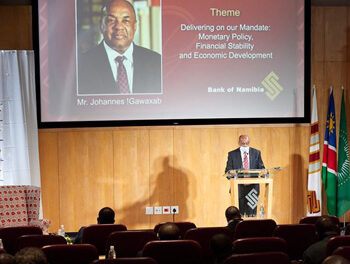
ICT ministers meet in Windhoek to accelerate broadband roll-out and cyber security

By Kumbirai Nhongo.
Windhoek – SADC ministers responsible for Information Communication Technology (ICT) are meeting in Namibia to explore strategies to strengthen the region’s ICT infrastructure as it is viewed as a critical component of development.
In fact, ICT infrastructure is an enabler for regional integration, and the Southern African Development Community (SADC) has identified ICT development as a top priority to advance the region’s industrialisation agenda.
In preparation for the SADC ICT ministers meeting set for 27 September in Windhoek, a number of meetings including one comprising senior government officials from respective Member States as well as representatives from SADC subsidiary organisations that are actively involved in the ICT sector are already underway to discuss ways of improving the region’s ICT infrastructure.
The purpose of the preparatory deliberations by senior ICT officials is to analyse key priority items on the agenda to make recommendations for review and possible adoption by the meeting of ministers.
Some of the key issues that the ICT ministers will have to consider include ways in which the region’s broadband infrastructure can be expanded to become more accessible to marginalized rural communities.
In 2015, SADC ICT ministers adopted broadband targets including the goal to reach 80% of the population of each SADC Member State with broadband services by 2020.
These targets are likely to be extended from 2020 to 2025 so that they conform to those set by the Broadband Commission for Sustainable Development in January 2018, at the World Economic Forum in Davos, Switzerland.
Notwithstanding this likely revision, a draft report by the Communications Regulators Association of Southern Africa (CRASA) on the status of the region’s broadband targets shows that the majority of SADC Member States are behind schedule with urgent strategies needed to accelerate implementation.
ICT policymakers will consider how the region can attain universal digital financial inclusion primarily through the expansion of mobile financial services.
In this regard, the ministers will review the draft SADC Digital Financial Inclusion Regulatory Principles and Guidelines to provide the necessary framework through which such products and services will be rolled-out.
A major barrier to accessibility is often the prohibitive cost of ICT products and services with SADC being urged to find ways in which such costs can be reduced for the benefit of low-income communities.
Part of the strategies being pursued by SADC Member States is the establishment of both National Internet Exchange Points (NIXPs) and Regional Internet Exchange Points (RIXPs) designed to route internet traffic within the region.
This initiative is expected to reduce internet costs, given that most Member States currently rely on telecommunications gateways in European countries to manage or direct digital traffic into the region and the rest of the African continent.
The ICT ministers meeting will also provide guidance on strengthening the region’s cyber security infrastructure. This follows a workshop from 10 to 13 September in Mauritius in partnership with the International Telecommunications Union (ITU) on how the region should address cyber security.
A draft Cyber Security Action Plan is thus expected to be tabled before the ministers. The action plan calls for a coordinated approach to safeguarding the security of the region’s ICT networks and services.
The SADC Secretariat said that only one Member State, Mauritius, has ratified the African Union Convention on Cyber Security and Personal Data Protection.
Another key issue is the establishment of Computer Incident Response Teams (CIRT) at national and regional level to safeguard the region’s ICT infrastructure.
According to the SADC Secretariat only four countries have established and operationalized their Response Teams while seven other countries are waiting for the enactment of appropriate legislation to operationalize their respective national Response Teams.
In a bid to consolidate the security of ICT networks in southern Africa, the ministers are also expected to consider and approve the Framework for Establishing the SADC CIRT for implementation at the regional level.
Following the SADC Declaration on the Fourth Industrial Revolution through ICTs, made in September 2017, the ministers will explore ways in which this regional aspiration can be operationalized.
Southern African News Features are produced by the Southern African Research and Documentation Centre. Website and Virtual Library for Southern Africa at www.sardc.net.













































